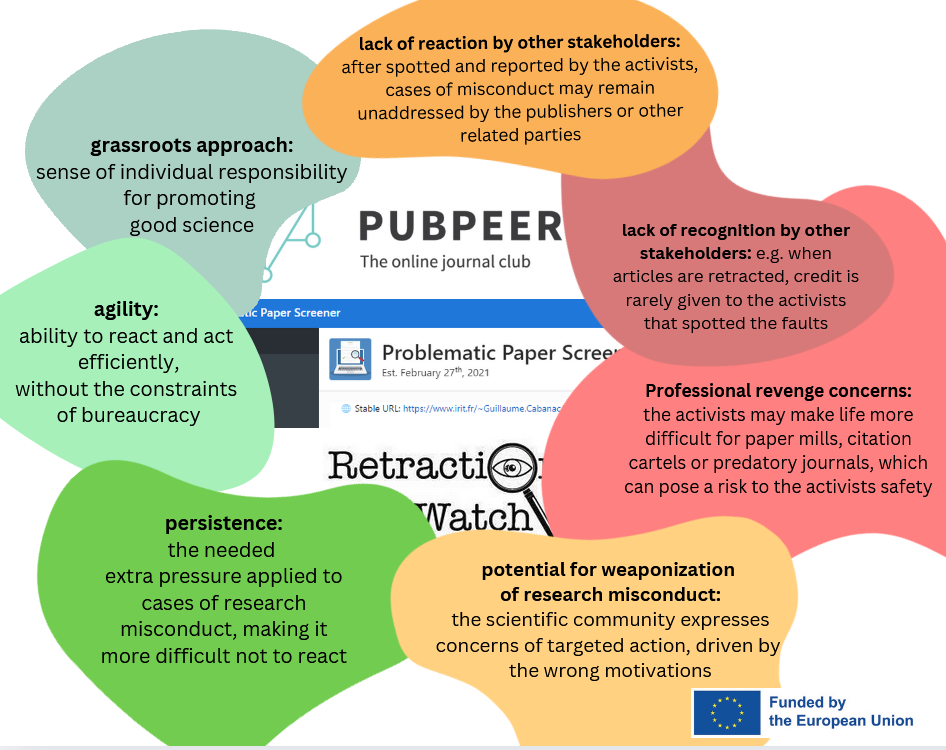A closer look at independent action against research misconduct

Excerpt from the BEYOND public consultation (3/3)
From September 2023 until June 2024, various stakeholder groups were involved in the public consultation activities of BEYOND. The approach included an anonymous online survey with multiple-choice and open questions (205 participants) and semi-structured in-depth interviews (31). The information you see here is based on the learnings of the public consultation. Find the full report at Zenodo.
Increasingly, sleuths, social media activists, and science journalists are pointing at the negligence in research misconduct handling. By taking matters into their own hands, they both reveal a jolting extent of research misconduct and leave some of the scientific community questioning the fairness of their approach.
Grassroots approach:
- Sense of individual responsibility for promoting good science
Agility:
- Ability to react and act efficiently, without the constraints of bureaucracy
Persistence:
- The needed extra pressure applied to cases of research misconduct, making it more difficult not to react
Lack of reaction by other stakeholders:
- After being spotted and reported by activists, cases of misconduct may remain unaddressed by the publishers or other related parties
Lack of recognition by other stakeholders:
- For example, when articles are retracted, credit is rarely given to the activists who spotted the faults
Professional revenge concerns:
- The activists may make life more difficult for paper mills, citation cartels, or predatory journals, which can pose a risk to the activists' safety
Potential for weaponization of research misconduct:
- The scientific community expresses concerns of targeted action driven by the wrong motivations
Latest articles
21.1.2026
Results of national survey on responsible research practice presented at University of Latvia
28.11.2025
BEYOND’s Guidelines published!
14.11.2025
Bridging Research Integrity & Open Science – The ROSiE Knowledge Hub
1.9.2025
SEMINAR ON RESPONSIBLE AI, RESEARCH MISCONDUCT AND RESEARCH INTEGRITY
6.8.2025